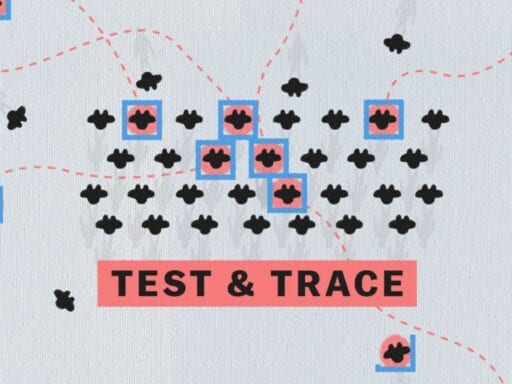Systematic testing and tracing was key to slowing down Covid-19 in the country.
Both South Korea and the US identified their first positive case of Covid-19 on January 20. But where other countries failed to contain their epidemics, South Korea succeeded. By April, as the US remained in lockdown due to the coronavirus’s unceasing spread, South Korea had begun to open up. Citizens returned to public spaces and businesses began welcoming back customers. Although there have been minor surges in the time since, South Korea’s case rates continue to remain lower than other countries that have experienced a major outbreak.
South Korea’s Covid-19 containment was so successful in part because the country had seen it before. In 2015, South Korea had an outbreak of MERS (Middle East Respiratory Syndrome) caused by a coronavirus similar to the one responsible for Covid-19. Thirty-eight people died, and South Korea suffered the largest outbreak outside of the Middle East. Based on that experience, the country undertook extensive measures to plan and prepare for the next outbreak.
This time, it was ready. Before the coronavirus arrived in January, South Korea’s government had worked closely with health officials to prepare a plan of action that included a stockpile of testing kits and clear guidelines for identifying and isolating positive cases. The plan’s success prevented the country from suffering death tallies seen elsewhere in the world — and South Korea has become a model, both now and for future pandemics.
You can find this video and all of Vox’s videos on YouTube.
Support Vox’s explanatory journalism
Every day at Vox, we aim to answer your most important questions and provide you, and our audience around the world, with information that has the power to save lives. Our mission has never been more vital than it is in this moment: to empower you through understanding. Vox’s work is reaching more people than ever, but our distinctive brand of explanatory journalism takes resources — particularly during a pandemic and an economic downturn. Your financial contribution will not constitute a donation, but it will enable our staff to continue to offer free articles, videos, and podcasts at the quality and volume that this moment requires. Please consider making a contribution to Vox today.
Author: Mac Schneider
Read More



